
José María Urbina biography, government, contributions

Jose Maria Urbina He was an Ecuadorian military and politician born in 1808, when that territory still belonged to the Spanish Empire. In 1851, he became Supreme Head of the country by overthrowing Diego Noboa in a coup. The following year, he was appointed constitutional president, a position in which he remained until 1856.
Urbina's military vocation led him to enter the Naval Academy before his teens. Starting in 1828, he participated in several of the most important battles of the time, such as the naval combat of Malpelo or, later, the Battle of Miñarica..
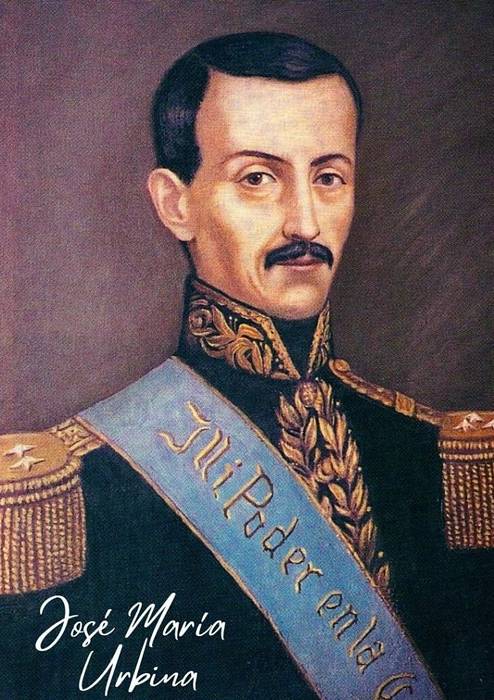
His actions on the battlefield earned him several promotions and, in 1843, President Flores appointed him governor of the province of Manabí. Urbina held that position when, in 1845, the Marcista Revolution broke out, which put an end to the Florentine stage. The following year, he was elected Secretary of the National Constituent Assembly.
After becoming president, Urbina enacted some important reforms, notably the abolition of slavery. On the negative side, his government was characterized by the repression to which it subjected the opposition.
Article index
- 1 Biography
- 1.1 First military participation
- 1.2 Military career
- 1.3 Marcist revolution
- 1.4 Coup against Ascásubi
- 1.5 President of Ecuador
- 1.6 Last years and death
- 2 Government
- 2.1 Constitutional President
- 2.2 Banishment of the Florianists and repression
- 3 Works and contributions of Urbina
- 3.1 Abolition of taxes on indigenous people
- 3.2 Education
- 3.3 Debt
- 3.4 Other measures
- 4 References
Biography
José María Mariano Segundo de Urbina y Viteri was born in Quito on March 19, 1808, although some sources affirm that his hometown was Píllaro. His father, Gabriel Fernández de Urbina, was Spanish and served as the last Royal Accountant of the Colony. His mother, Rosa Viteri, was a native of Ambato.
Urbina attended primary education in her hometown, although she also spent part of her childhood in Ambato, in the care of her maternal relatives. Very soon, with only 13 years old, he left his studies to move to Guayaquil and enlist in the Naval School.
In that institution he received military training from General Juan Illingworth, who, according to historical sources, took care of him as if he were his son..
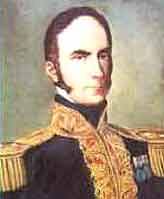
First military participation
When he finished his education, at age 16, Urbina became a Marine Guard. Under the orders of Illingworth, he participated in the block to El Callao, the last Spanish bastion in the territory.
His first promotion was obtained at age 20, when he became a naval lieutenant. At the beginning of the war between Peru and Gran Colombia (of which Ecuador was then part), Urbina was assigned to the schooner La Guayaquileña, where he coincided with Francisco Robles, then a midshipman..
In that destination, Urbina demonstrated his courage in the naval combat of Punta Malpelo. In the exchange of fire against a Peruvian frigate that was preparing the blockade of the Gulf of Guayaquil, the young soldier was wounded.
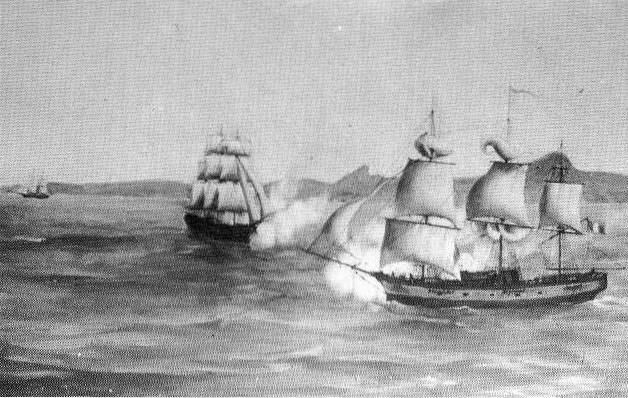
A year later, Urbina participated in the land battle of Tarqui, again against the Peruvian army.
Military career
Urbina's military career intensified from 1830. In a very turbulent historical context, the future president participated in several fundamental events for the country's history..
On May 13, 1830, Ecuador separated from Greater Colombia and became an independent country. The first president was Juan José Flores, who had to face the revolution started by Luís Urdaneta. Urbina had an important participation in the campaign to quell that insurrection.
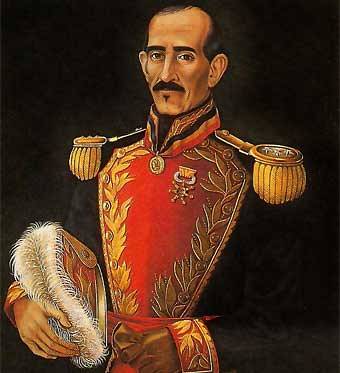
Later, Urbina was sent to Bogotá as part of a diplomatic committee. During the civil war that broke out in the country in 1834, the military sided with the revolutionaries and, the following year, intervened prominently in the Battle of Miñarica. A pact between Rocafuerte and Flores put an end to the civil confrontation.
In 1836, already with Vicente Rocafuerte in the presidency, Urbina was appointed Minister plenipotentiary in New Granada.
The following year, Urbina was removed from that position, something that angered the military. His reaction was to ally himself with General Juan Otamendi to try to revolt the Riobamba garrison. The government, aware of the conspiracy, ordered the exile of Urbina abroad.
Marcist revolution
In 1839, with the return of Flores to the presidency, Urbina was able to return to Ecuador. The president then appointed him governor of the province of Manabí, in addition to being designated to participate in the constituent assembly of 1843.
Being governor of Manabí, Urbina ended up supporting the Marcista Revolution, which began on May 6, 1845 with the intention of overthrowing Flores. The military man led an uprising in the province he governed, which earned him the gratitude of the provisional government that the revolutionaries had installed in Guayaquil.
Urbina was promoted to brigadier general by that government and, with an army division, advanced towards Guayaquil, where he entered on May 27 amidst the enthusiasm of the population..
The constituent assembly installed in Ambato elected Vicente Ramón Roca as the new president and Urbina was appointed Minister of Foreign Relations. From that moment, he held several important political and military positions, among which were the president of deputies, senator, Chief of Staff and Superior, Civil and Military Chief of Guayaquil..
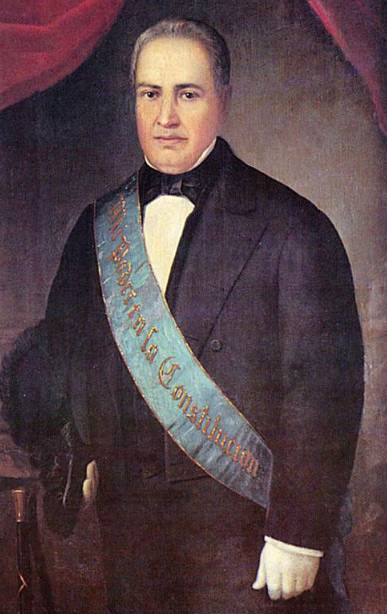
Coup against Ascásubi
José María Urbina had established his residence in Guayaquil. There, thanks to his influence over the military, he organized a rebellion against the government of Manuel de Ascásubi, whom he accused of various crimes.
The rebellion began on December 20, 1849, but the people of Guayaquil reacted quickly and prevented it from going further..
The government called Urbina to the capital to answer for his actions, but he managed not to be punished. Ascásubi's only response was to try to change the military leaders of Guayaquil.
Urbina then convened a popular assembly in the city, which elected Diego Noboa as Supreme Chief on March 2, 1850. On June 10 of that year, Ascásubi resigned the presidency and Noboa replaced him..

The new president offered Urbina the Ministry of War and Navy, but he rejected the offer and accused Noboa of having agreed with Flores' followers, which, according to the military, compromised national security.
With this accusation, Urbina organized a military coup. On this occasion, his uprising was successful and on July 17, 1851, he was proclaimed Supreme Chief of the Republic by the Guayaquil garrison..
President of Ecuador
In 1851, still as Supreme Chief, Urbina had to face an invasion attempt led by Flores and supported by Peru..
Once the invasion was rejected, Urbina called a constituent assembly to restore legal order in the country. This assembly, which met in Guayaquil, proclaimed him interim president on July 17, 1852.
The work of the assembly concluded with the promulgation of a new constitution. Then, on September 6, 1852, Urbina was elected as constitutional president.
His presidential term lasted until 1856. In the face of the elections, Urbina lent his support to Francisco Robles, who was ultimately elected to the post..
Last years and death
The election of Gabriel García Moreno as president of Ecuador in 1861 caused Urbina to go into exile in Peru. From there he organized several invasion attempts, but none of them were successful..
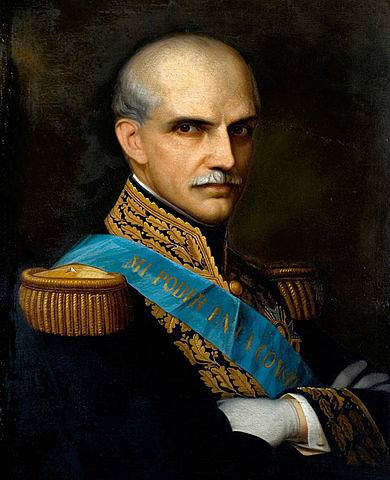
Urbina could not return to his country until 1875, when García Moreno was assassinated. The military man then led the Veintemilla Revolution, which culminated in the overthrow of Antonio Borrero and the establishment of the dictatorship of Ignacio de Veintimilla..
In 1878, Urbina was elected to preside over a new constituent assembly, meeting in Ambato. In 1891, already away from politics, he died at his home in Guayaquil.
government
In 1851, José María Urbina was proclaimed Supreme Chief after giving a coup against Diego Noboa.
Juan José Flores, the country's former president, tried to overthrow Urbina through an invasion supported by Peru and the Ecuadorian conservatives. The failure of this attempt allowed Urbina to convene a Constituent Assembly to make his position official..
Constitutional president
The assembly to promulgate a new constitution was based in Guayaquil. On July 17, 1852, Urbina was appointed as interim president. When the constitution was approved, he became constitutional president on September 6 of the same year..
One of his first measures was to improve his relations with the Church, an institution that enjoyed great power at the time. For this he appointed Francisco Xavier de Garaycoa (the first bishop that the city of Guayaquil had) as a member of the Governing Council.
Banishment of the Florianists and repression
In addition to measures as important as the abolition of slavery, Urbina's presidential term was characterized by his heavy hand against the opposition.
The attempted invasion of Flores was used as a pretext to exile several families who were sympathetic to the former president. His assets were also confiscated.
On the other hand, Urbina asked Peru to pay compensation for having supported the mentioned invasion attempt. Both countries reached an agreement was reflected in the subsequent peace treaty.
Urbina's best-known decision, the abolition of slavery, was used by the president to form an elite army made up of freedmen. This military body, known as Taura, was commissioned to intimidate political opponents.
Conservatives launched a press campaign criticizing the government. Urbina reacted by decreeing the exile of some journalists.
Urbina's works and contributions
On July 25, 1851, just eight days after the coup that made him Supreme Head of the Republic, Urbina promulgated his most important law: the abolition of slavery..
The president not only limited himself to promulgating the decree, but also approved another with which he created a tax on gunpowder to pay slave holders for their freedom and that, thus, they would not be harmed.
Abolition of taxes on indigenous people
Another of the social laws that Urbina approved during his tenure was the economic liberation of the indigenous people. These had been required to pay high taxes since colonial times.
In 1854, Congress demanded the abolition of these taxes. In addition, the legislative body demanded "equality, therefore, in rights, of the Indians with the rest of Ecuadorians.".
Education
Urbina also tried to change the educational structure of the country. To do this, he promulgated the Law of Freedom of Studies, which guaranteed primary education but privatized secondary and university education..
In addition, the law added that students could take their tests whenever they wanted, without having to register or attend classes. According to experts, this legal reform harmed educational quality in recent cycles.
Debt
The government tried to find a solution to one of the great economic problems that the country suffered: its high debt. This, which had been inherited from its stage as part of Greater Colombia, was especially important with the English government.
The Ecuadorian leaders met with a representative of the English creditors to reach an agreement. Finally, they determined that Ecuador would pay off its debt through the exploitation and colonization of large tracts of land located next to the Marañón River and in the Esmeraldas logging regions..
This agreement, however, could not be carried out due to the claims made by Peru. This country argued that the Marañón territories were in dispute and that the border issue between the two countries had to be resolved first..
Other measures
In addition to the above, the government headed by Urbina approved other important measures. One of the first was the expulsion of the Jesuits, a decision demanded by the Assembly.
On the other hand, the administration took power away from the landowners by extending the possession of water to some remote villages..
In the field of defense, Urbina improved the salaries of the military, as well as their training and equipment. This served him to gain the favor of the army and, thus, to control the rebellion attempts on the part of the followers of Flores.
Despite the fact that his government was quite repressive towards opponents, Urbina repealed the death penalty for political reasons.
Finally, the government lowered tariffs on products destined for export in an attempt to improve the economy..
References
- Avilés Pino, Efrén. Urbina Gral. José María. Obtained from encyclopediadelecuador.com
- Ruiza, M., Fernández, T. and Tamaro, E. José María Urbina. Obtained from biografiasyvidas.com
- Educate Plus. José María Urbina and Viteri. Obtained from educarplus.com
- Encyclopedia of Latin American History and Culture. Urbina, José María (1808-1891). Retrieved from encyclopedia.com
- People Pill. José María Urbina. Retrieved from peoplepill.com
- Kids Encyclopedia Facts. José María Urbina facts for kids. Retrieved from kids.kiddle.co
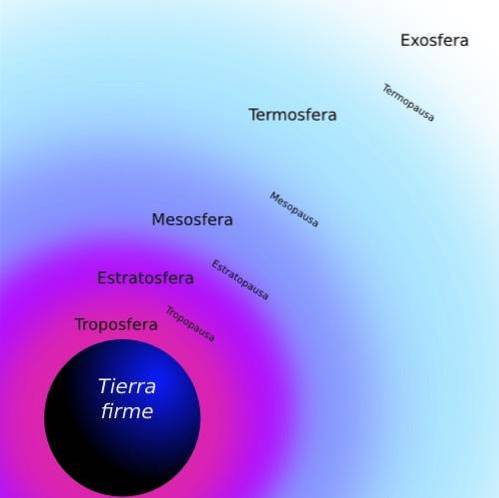

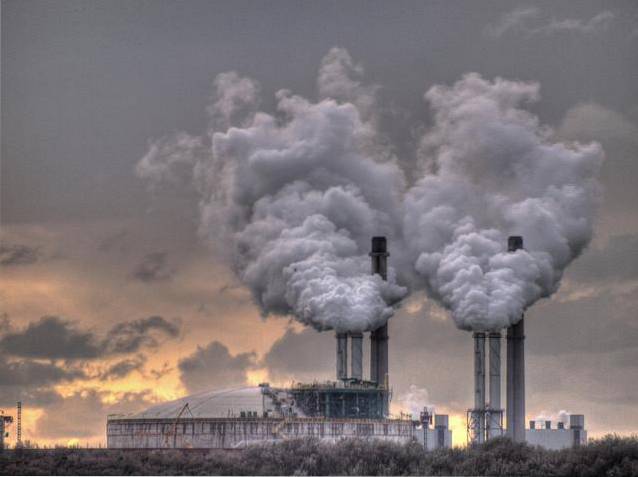
Yet No Comments